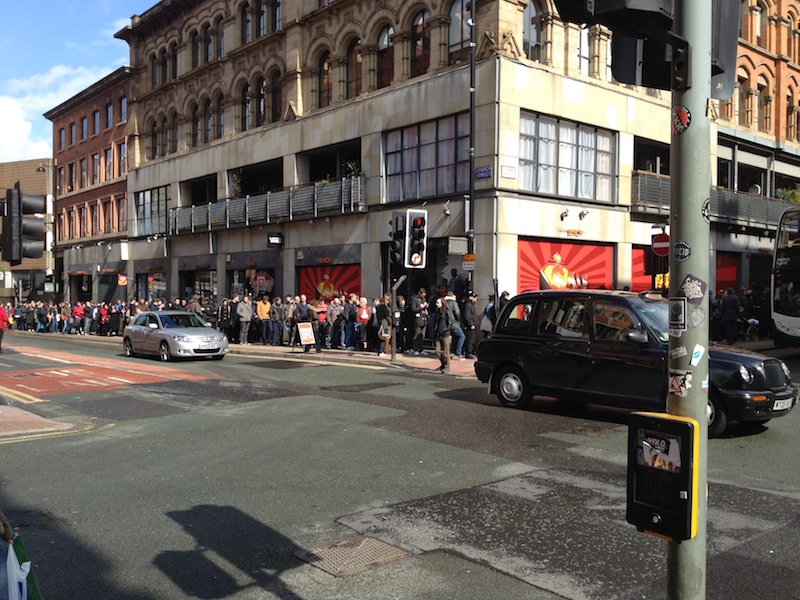I understand your logic, but I've traded in music all my life, right from when I was a kid at school. It's always been something I've done and I'm not changing mindset now. I'm pretty sure there will always be a marketplace for customers who want physical product as we tend to be the big spenders when it comes to buying music - I must spend £50-100 a month with Amazon alone. I believe the average downloader only spends a few tens of pounds a year.

One only needs to look at the ridiculous queues trailing around many blocks on Record Store Day to know folk still want physical product, especially if it's nice / limited / collectable. Neither end of the queue (outside Piccadilly Records, Manchester, which is out of shot behind the bus on the far right of frame) is visible in the above picture, it stretched right round the back of the block, and was sufficient that I gave up on the idea after moving only a few feet in an hour, as I assume hundreds of others did too. As a proof of market however it speaks volumes.


